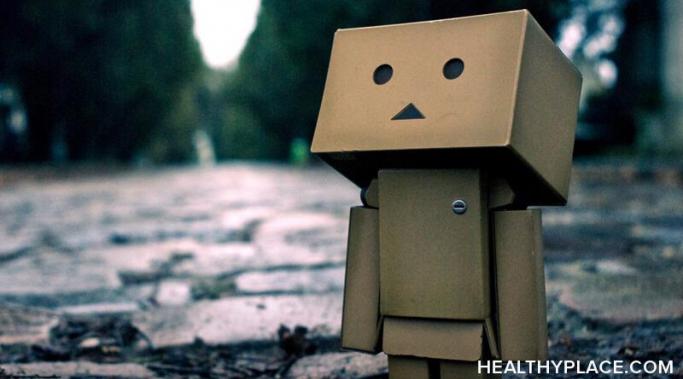Choosing exercise to help treat depression is a great idea. Not only does it release feel-good endorphins, it allows for social interaction as well as gives structure to our days. In this post, I share how to exercise to help treat depression as well as three things to consider when you exercise to help treat depression.
Coping with Depression
Many of us face the loss of identity in depression. It feels as if there is a stranger living inside of us. We don't recognize the person we see in the mirror. It's as if depression has stripped us as bare as a tree in the midst of a long, cold winter. It's difficult, but I deal with a loss of identity in depression and so can you.
Exercise helps depression. Unfortunately, when we are dealing with depression, exercise can feel like the last thing we want to do. While we understand there are benefits of exercise such as it helps to reduce the risk for lifestyle-related diseases, counteracts the daily effects of stress, and shapes our bodies by building muscle, we often forget that it also helps alleviate depression. Needing to get motivated to exercise again, I’ve spent time thinking about how exercise helps with depression.
Comparing ourselves to others worsens depression. When I do it, it adds fuel to my negative thoughts and the descent starts there. I have discovered some ways to keep the comparison beast from taking over my mind and my life and therefore worsening my depression.
Feeling self-conscious when I am depressed is common for me. I worry about every single thing I do and say. I have found hope in the fact that there are ways to lessen this self-conscious feeling when I’m depressed.
Many times people say things that make depression worse. These things they say are hurtful or seem insensitive to those of us with depression. Whether intentional or not, it still stings and can even lead us to a major depressive episode. There are still many misconceptions about depression, and one of the reasons I write is so that I can help people learn about and better understand depression and what it really is. One way to do this is by offering suggestions of what to say to someone with depression, which I wrote about in my previous post. Another is to let people know what things they should not say to people who have depression.
We should celebrate achievements when we're depressed because it's a wonderful way to bring positivity into our lives. When we are depressed, just getting through a day without falling part can be difficult. Many times, getting out of bed and showering requires great effort. Then, add in all of the other items on our to-do lists, and achieving anything feels nearly impossible. At times like these, it’s important to be gentle with ourselves and celebrate our achievements. I've thought about why this is important and how we can celebrate achievements when we're depressed.
Depression makes it difficult to practice self-love, particularly on the darkest of days. When a seemingly simple activity such as getting out of bed is overwhelming, it is hard to think about practicing self-love; however, by doing small things to show ourselves love, nourishing our minds and bodies can be done.
Feelings of guilt and shame can be intense when we are depressed. Our perception of the past becomes skewed and these guilty and shameful feelings can become such a burden that we feel overwhelmed, unable to see realistically. I’ve spent some time contemplating why we, who battle depression, often feel overwhelmed with feelings of guilt and shame and what we can do about it.
Sometimes people don't know what to say to someone with depression. Those of us with depression typically have family and friends who want to encourage us; however, all too often we find that even well-meaning people end up saying the very things we don't need to hear. When this happens, it can leave both the person who spoke the words and the person to whom they were spoken feeling quite discouraged and possibly angry or upset. While I'd like it if all people could somehow know what to say to someone with depression, that's not realistic. Instead, we need to give them suggestions and guidelines. I've come up with some things that I would like to hear as someone with depression.









